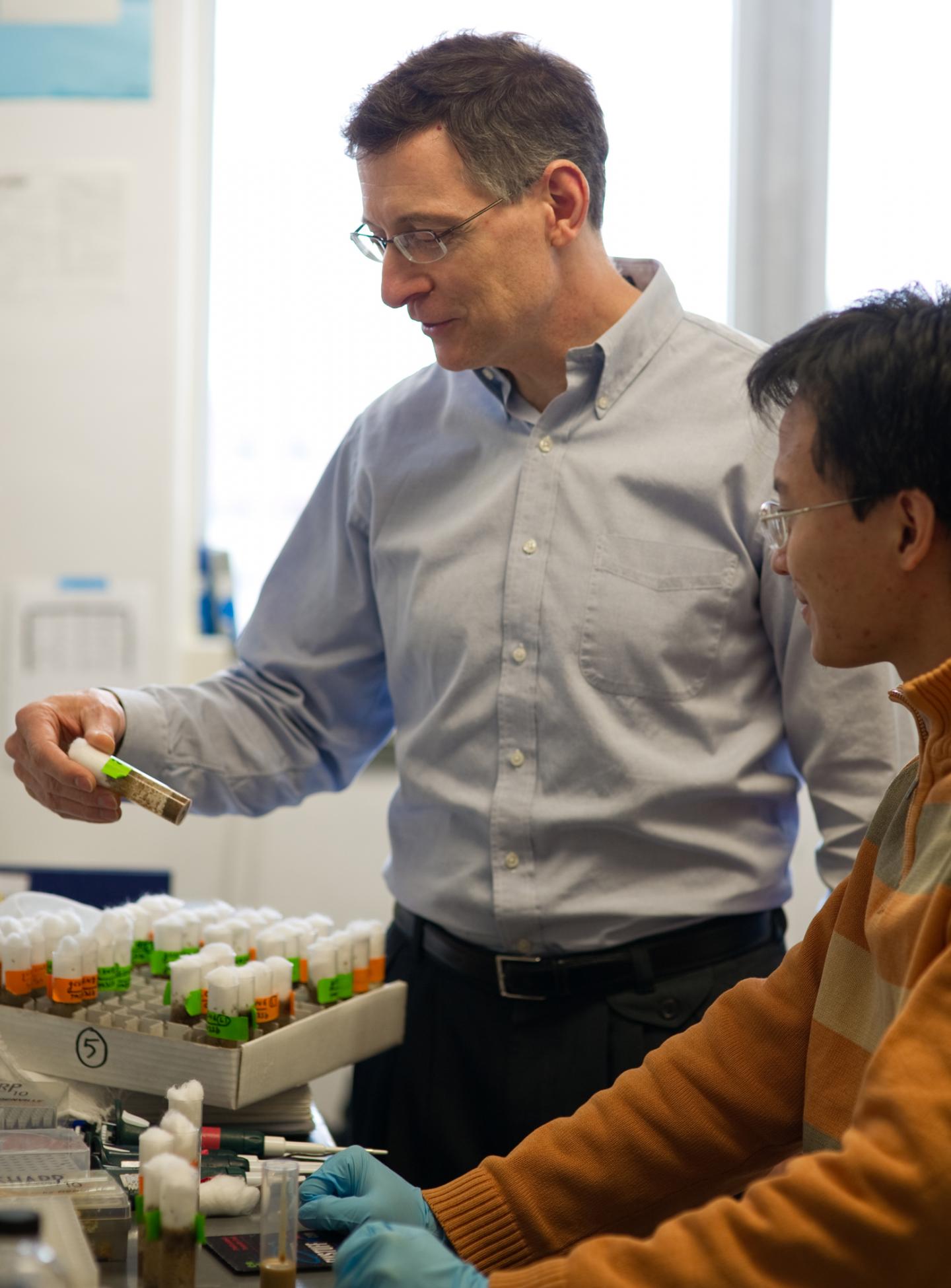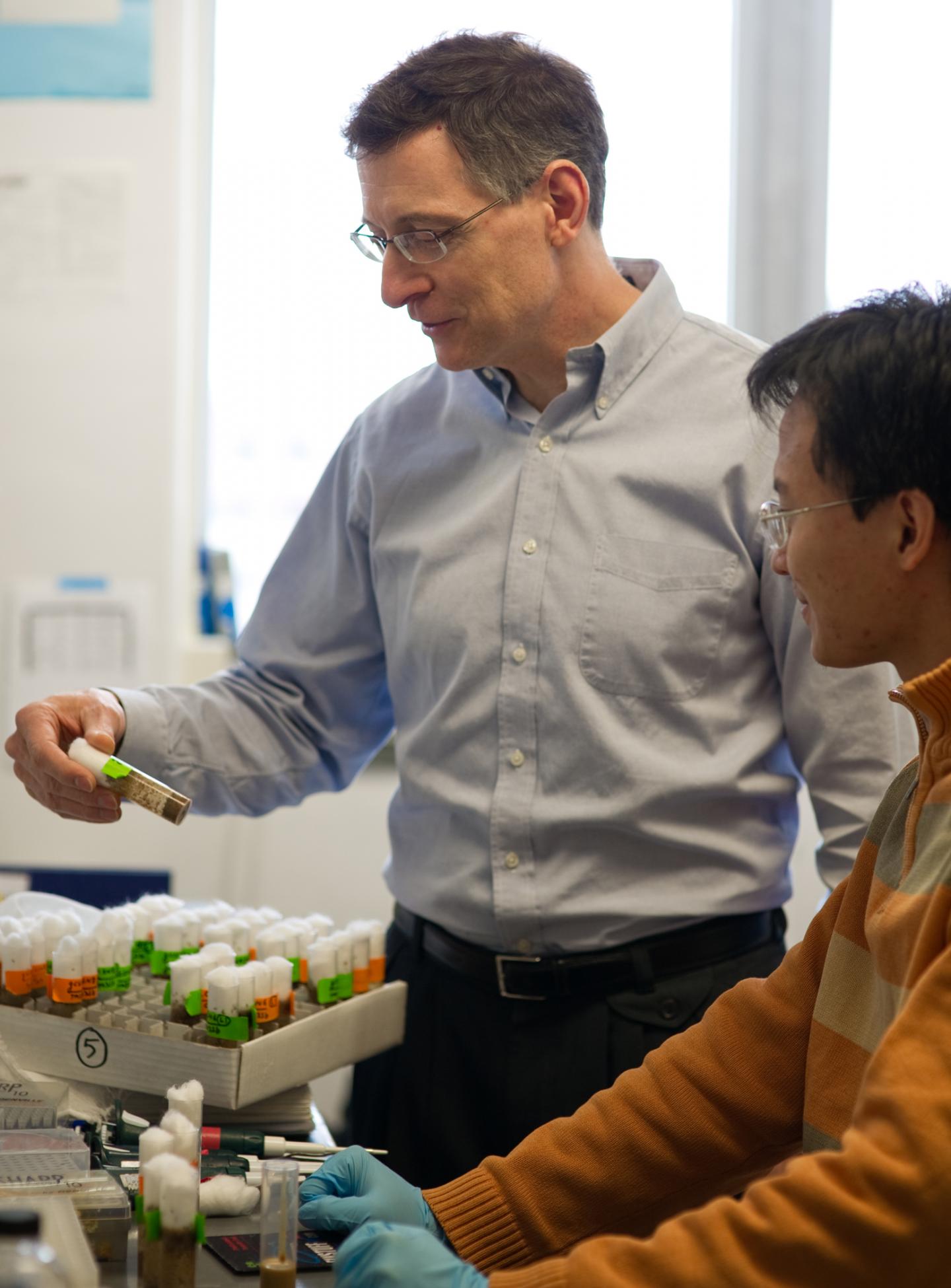
Credit: Courtesy of MSU
EAST LANSING, Mich. — Fruit flies may be small, but the genetic secrets they can unlock for humans are mighty.
In the current issue of the journal Development, Michigan State University researchers mapped the signaling processes used by insulin in fruit flies. The significance of the discovery in the tiny Drosophila melanogaster, which have been called "tiny people with wings, genetically speaking," sheds light on how these processes may be altered by diabetes in humans.
Diabetes represents a growing threat to public health. An estimated one-third of the U.S. population has diabetes or the elevated blood sugar associated with pre-diabetes. As it turns out, fruit flies may be able to help address this issue. Insulin signaling is an important process for these creatures; past studies have proven that the natural hormone insulin controls growth and development of the fly.
Additionally, fruit flies raised on a high-sugar diet consisting solely of bananas can actually develop a diabetic-like state, with metabolic dysfunction similar to humans, said David Arnosti, MSU biochemistry professor, director of MSU's Gene Expression in Development and Disease Initiative and the study's senior author.
As an extension of these past findings, Yiliang Wei, a graduate student in Arnosti's lab and study co-author, focused on the insulin receptor protein, which binds to insulin and regulates its effects.
"This regulation is similar to the volume control on a hearing aid," Arnosti said. "If you turn it way down, it doesn't matter how loud someone shouts at you."
If the volume is too far down, this low expression may be linked to diabetes as well as Alzheimer's disease. Cranking up the volume, or overexpression, may actually give cancer cells a growth advantage. Balancing that expression sweet spot, so to speak, involves some complex circuitry – molecular wiring discovered by the MSU team.
Little was known about how levels of this protein were regulated before the researchers mapped its controlling circuits. One surprising finding was the large number of genetic switches controlling expression of the receptor, which had been previously assumed to possess rather simple regulation. The structure and function of this circuitry is likely to have been sculpted by evolutionary selection.
The tiny fruit fly has once again proven itself as an effective model organism and given the team solid ground on which to move forward. The researchers predict that the human gene will be similarly regulated, which could open a new chapter in diabetes research to find ways to modulate insulin signaling through control of the receptor, Arnosti said.
###
Additional MSU scientists contributing to this paper include Rewatee Gokhale, Anne Sonnenschein, Andrew Ingersoll and Kelly Monet Montgomery.
This research was funded by the National Institutes of Health.
Michigan State University has been working to advance the common good in uncommon ways for more than 150 years. One of the top research universities in the world, MSU focuses its vast resources on creating solutions to some of the world's most pressing challenges, while providing life-changing opportunities to a diverse and inclusive academic community through more than 200 programs of study in 17 degree-granting colleges.
For MSU news on the Web, go to MSUToday. Follow MSU News on Twitter at twitter.com/MSUnews.
Media Contact
Layne Cameron
[email protected]
517-353-8819
@MSUnews
http://msutoday.msu.edu/journalists/





